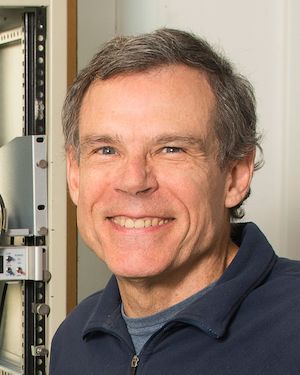
Bruce Bean, PhD
Robert Winthrop Professor of Neurobiology, Harvard Medical School
Bruce Bean is Robert Winthrop Professor of Neurobiology at Harvard Medical School. Bean graduated from Harvard College, received a Ph.D. in Biophysics from the University of Rochester, did postdoctoral work with Richard W. Tsien at the Yale School of Medicine, and has previously held faculty positions at the University of Iowa and the Vollum Institute of Oregon Health Sciences University. His research interests are in the electrophysiology of neurons and muscle and in using ion channels to develop new therapeutic treatments.
Inhibition of A-type potassium current by the peptide toxin SNX-482.
Pacemaking in dopaminergic ventral tegmental area neurons: depolarizing drive from background and voltage-dependent sodium conductances.
Robustness of burst firing in dissociated purkinje neurons with acute or long-term reductions in sodium conductance.
Properties of sodium currents and action potential firing in isolated cerebellar Purkinje neurons.
Na+ channels must deactivate to recover from inactivation.
Pharmacology of calcium channels in cardiac muscle, vascular muscle, and neurons.
Mechanisms of calcium channel modulation by beta-adrenergic agents and dihydropyridine calcium agonists.
Authors: Authors: Tsien RW, Bean BP, Hess P, Lansman JB, Nilius B, Nowycky MC.
J Mol Cell Cardiol
View full abstract on Pubmed
J Mol Cell Cardiol
View full abstract on Pubmed
Intrinsic membrane hyperexcitability of amyotrophic lateral sclerosis patient-derived motor neurons.
Authors: Authors: Wainger BJ, Kiskinis E, Mellin C, Wiskow O, Han SS, Sandoe J, Perez NP, Williams LA, Lee S, Boulting G, Berry JD, Brown RH, Cudkowicz ME, Bean BP, Eggan K, Woolf CJ.
Cell Rep
View full abstract on Pubmed
Cell Rep
View full abstract on Pubmed
Selectively targeting pain in the trigeminal system.
Authors: Authors: Kim HY, Kim K, Li HY, Chung G, Park CK, Kim JS, Jung SJ, Lee MK, Ahn DK, Hwang SJ, Kang Y, Binshtok AM, Bean BP, Woolf CJ, Oh SB.
Pain
View full abstract on Pubmed
Pain
View full abstract on Pubmed
The molecular machinery of resurgent sodium current revealed.